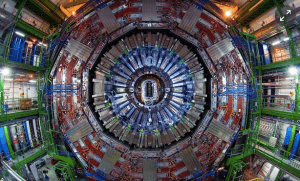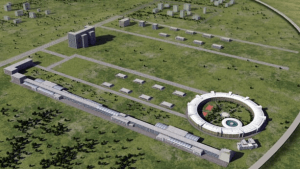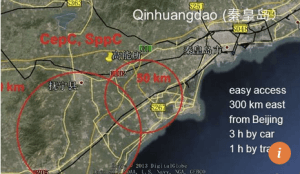
‘China won’t succeed where US has failed’: future of after Nobel laureate’s harsh words

A plan to develop a super particle collider in China may be in jeopardy following a negative assessment by a Nobel laureate, according to physicists.
On Sunday, Dr Yang Chen-ning, co-winner of the Nobel Prize in physics in 1957 and now living on campus at Tsinghua University in Beijing, released an article on WeChat opposing the construction of the collider.
He said the project would become an investment “black hole” with little scientific value or benefit to society, sucking resources away from other research sectors such as life sciences and quantum physics.
High-energy physicists proposed the project four years ago. It would be four times the size of the Large Hadron Collider in Europe, currently the world’s largest. But the cost would be tremendous as well.
The first stage of the project was estimated to cost 40 billion yuan (HK$46 billion) by 2030, and the total cost would exceed 140 billion yuan when construction is completed in 2050, making it the most expensive research facility built in China.
Yang’s article hit nearly all social media platforms and internet news portals, drawing tens of thousands of positive comments over the last couple of days.
Dr Wang Yifang, lead scientist of the project with the Chinese Academy of Sciences’ Institute of High Energy Physics, responded to Yang in an article on WeChat on Monday.
He said Yang had made many mistakes in his article because he was no longer active at the forefront of scientific research. Wang was named by Nature magazine as a top star in Chinese science for his role in the collider project.
“The damage is done and I see no effective cure,” a physicist involved in the collider project told the South China Morning Post.
Yang’s main argument was that China would not succeed where the United States had failed. A similar project had been proposed in the US but was eventually cancelled in 2012 as the construction far exceeded the initial budget.
Wang argued that the situation in China was “completely different”, given government power was more centralised and Chinese construction workers and engineers were well known in meeting deadlines and budget.
There has also been debate over whether the collider would generate enough scientific and social benefits to justify the outlay.
Yang said existing facilities including the Large Hadron Collider contributed little to the increase of human knowledge and was irrelevant to most people’s daily lives.
But Wang argued research in high energy physics lead to the world wide web, mobile phone touch screens and magnetic resonance imaging in hospitals, among other technological breakthroughs.
